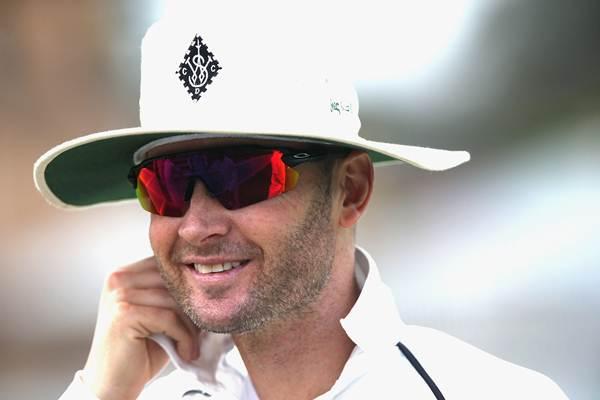Michael Clarke believes the coach is the second vice-captain of the team
Clarke makes it clear that the role of the coach is defined and understood by those in the game.
View : 252
2 Min Read


Michael Clarke is remembered as one of the best captains Australia has had and when he says something about captaincy, it’s natural that a lot of people are drawn to pay heed. After a rather confused stand about the coach’s role after the Virat Kohli-Anil Kumble saga, former cricketers have put forth their views regarding the same.
Because Kohli’s style of captaincy and leadership is now under the scanner more than ever, the former Australian captain has also shed some light about what he thinks of it. The Indian skipper just added to his stellar record leading the team in Test series clean sweep against Sri Lanka in their backyard. Following which they will be full of confidence heading to the ODI series. In the captain vs coach debate, Kohli faced heavy criticism because most blamed him for Kumble’s disgraceful ouster.
However, Clarke, when asked about his views on who takes precedence in the game, said, “The captain is accountable for the results of the team. I’ve read recently what Ravi Shastri said and he got it spot-on. He sees it as Virat Kohli’s team, he is the one who is going to be accountable for the wins and the losses. He has to face the media when the team loses. Ravi sees his role as trying to manage the players as well as possible, to get them fit and healthy for Virat.”
“Those two have a great relationship and will make a great partnership. The relationship between captain and coach is important. It is no different in business. You need to know who is accountable. You cannot have five cooks in the kitchen. You need to know who is driving the bus, who is in charge,” the World Cup-winning captain said.
He also made an interesting point about the coach being the second “vice-captain” which makes his role in the team, secondary to that of the captain. Because Clarke emphasizes on the captain being the one answerable to the public, in both victory and defeat, it is understood that he lays emphasis on Kohli’s role more than the coach of the team.
“You need good help and advice around you for success. No captain that I played under did things on their own. They had a vice-captain, coach, other senior players. You utilise all those people around you, but the captain was always the one in charge,” he said.
What really is the coach’s role then?
There was also concern about the increasing importance of placing the captain’s wishes over anyone else’s. If the captain takes precedence, is the coach only supposed to be the yes-man for the captain? Clarke makes it clear that the role of the coach is defined and understood by those in the game.
“It is man-management. The structure in Australian cricket has definitely changed – the coach, the chairman of selectors, the high performance manager have a lot more say now than when I first took over the captaincy. But in my opinion, the ideal system for the game of cricket is that the captain is in charge, and the coach is like the second vice-captain. A man-manager or manager is a better word for a coach at the highest level,” he concluded.
Download Our App